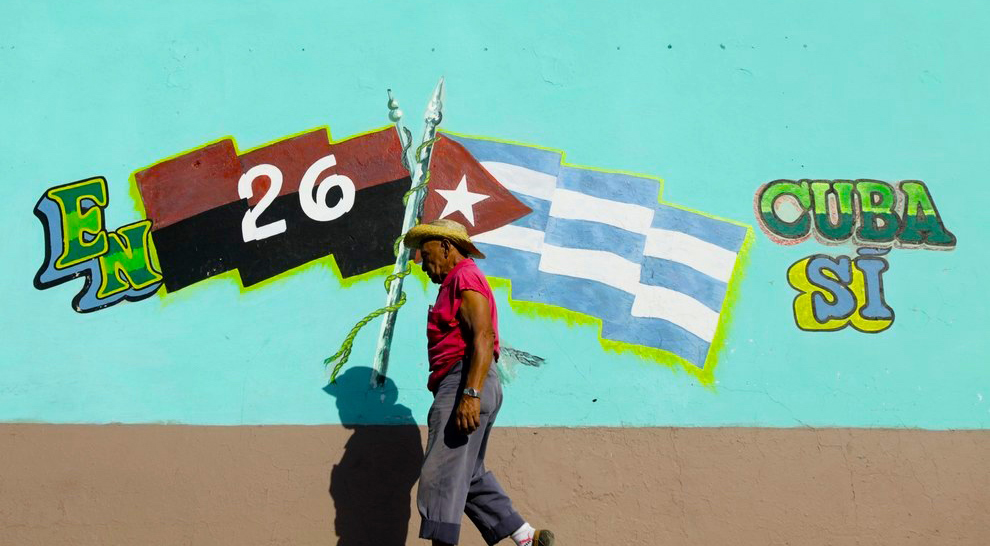
The decision to restore normal diplomatic relations offers the opportunity for the U.S. and Cuba to engage on genuinely equal terms for the first time in their long and troubled history.
Since Thomas Jefferson offered to buy the island from the Spanish in 1809, it has been a lopsided relationship that has shaped both countries, but inevitably the effect on Cubans has been far greater. The automobiles famously still on the road a half-century after the US embargo stopped the shipment of new cars and parts are testament to Cubans’ enforced flair for improvisation in an economy defined by scarcity.
Cuba has moulded U.S. history as well. Cuban exiles in Florida have exerted a powerful conservative force on U.S. politics, not only statewide, but at times on the whole nation: the 2000 knife-edge presidential election was decided in the “sunshine state.” Arguably, without the solidly Republican Cuban vote in Miami’s Little Havana, there would not have been a George W. Bush presidency.
And the continued U.S. toehold in Guantánamo Bay has had long-term consequences for both nations. It was leased in perpetuity to the U.S. under a 1901 agreement imposed while Cuba was still under U.S. military occupation. The so-called Platt amendment, which laid down conditions for a withdrawal of U.S. troops, also gave Washington the right to intervene in Cuba whenever it felt its interests threatened.
Even after it was repealed in 1934, the U.S. sought to wield influence by backing the dictatorship of Fulgencio Batista, whose excesses and corruption ultimately set the scene for Fidel Castro’s 1959 revolution.
The depth and enduring pettiness of the U.S.-Cuban rivalry has brought moments of farce. The CIA was exposed to ridicule when schemes for killing Castro were reported to extend to exploding cigars, a poisoned wetsuit and a booby-trapped conch on the seabed. There were also plots to undermine him with the use of thalium salts to make his trademark beard fall out or induce hallucinations by lacing the radio studio used for his radio addresses with LSD.
Cuban efforts to spy on the U.S. also had a pathetic side. The sleeper agents in the so-called Wasp network, three of whom were repatriated as part of today’s spy swap, were supposed to gather intelligence in Florida but never succeeded in uncovering a single secret. They spent much of their time and efforts simply trying to survive on their inadequate stipend. Several of the agents had to work two jobs and were simply too exhausted to spy. One was too busy tackling bouts of haemorrhoids and a particularly pushy mother-in-law.
The battle lines staked out across the 90 miles of the Florida Straits brought the world to the brink of nuclear war with the Cuban missile crisis of October 1962, when the Soviet Union tried to smuggle nuclear warheads onto the island and Kennedy imposed a naval embargo to force Nikita Khrushchev to remove them.
For most of the half-century since the U.S. broke off diplomatic relations, Washington has fought a war of economic attrition against its smaller neighbour. It is a campaign that failed to shake the Castro family’s grip on power but has generated untold human suffering, personified most memorably by Elian Gonzalez, a five-year-old Cuban boy found drifting on an inner tube in the Florida Straits in November 1999 after his mother and her boyfriend had drowned making the desperate crossing in the hope of a better life in the U.S. As with almost everything swallowed up by U.S.-Cuban relations, he became the object of a bitter dispute, as relatives in Miami and his father in Cuba fought a highly politicized campaign for custody that only ended when armed agents raided the relatives’ house in Little Havana in April 2000, seizing Elian and returning him to his father.
Fifteen years on, more than 25,000 undocumented Cubans continue to arrive in the U.S. by sea and by land through Mexico each year, and many thousands are thought to die trying, victims of one of the world’s most dysfunctional relationships.
3 WAYS TO SHOW YOUR SUPPORT
- Log in to post comments














